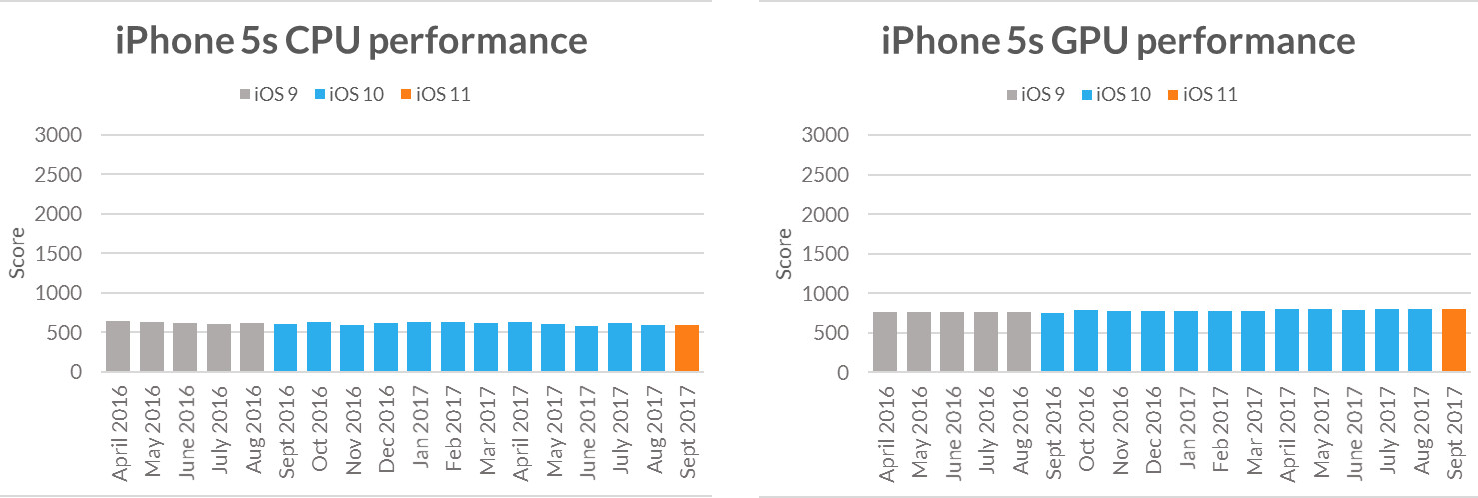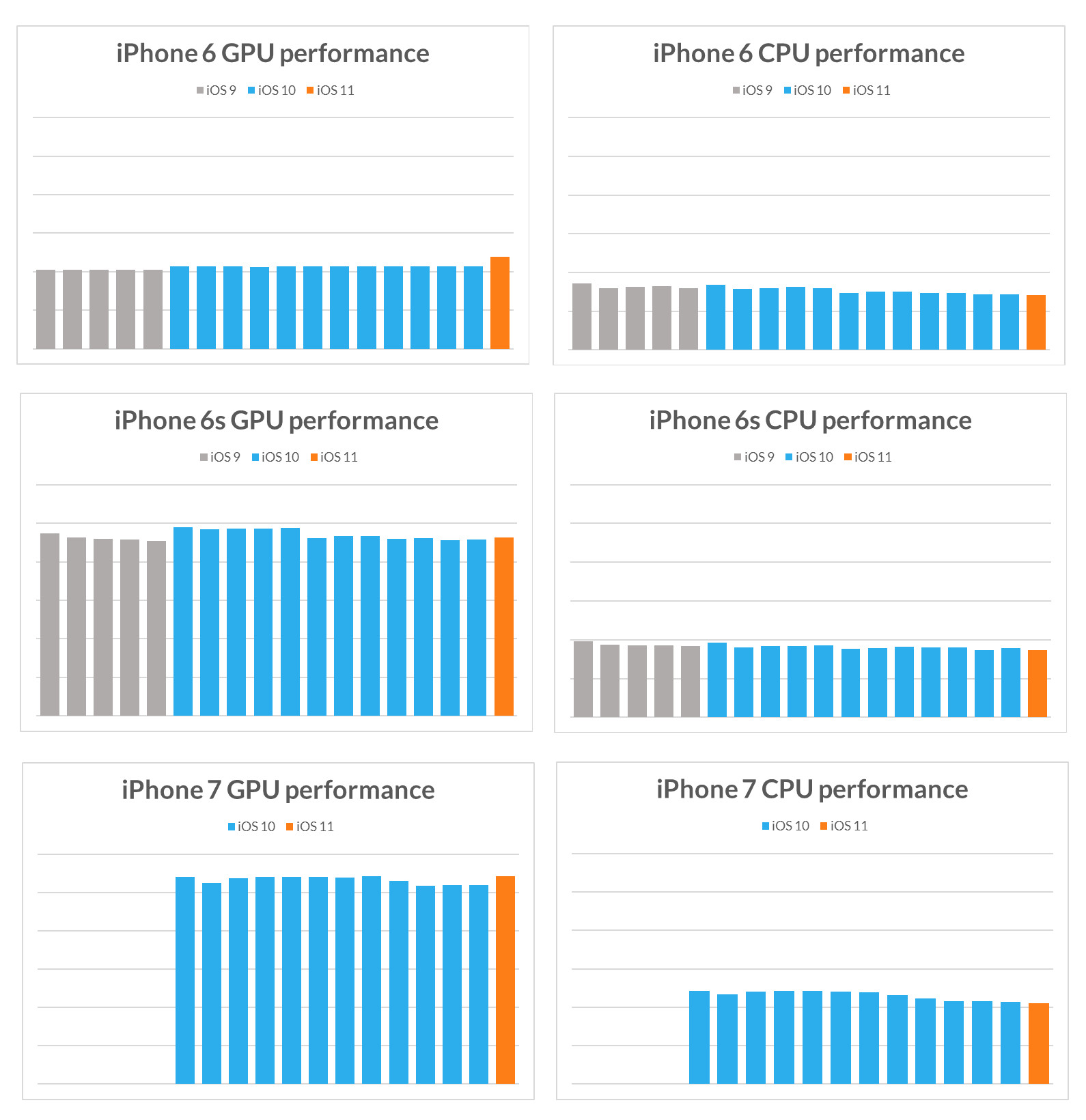
Long-running speculation that Apple deliberately slows down older iPhones in software in order to supposedly push people into purchasing its latest models has been officially debunked and put to rest by Finnish computer benchmark developers Futuremark.
Taking more than a hundred thousand 3DMark benchmark results for seven different iPhone models across three different versions of iOS, Futuremark delivers a more reliable insight into everyday performance data of each iPhone model over time.
Their 3DMark benchmarking app, a free download from App Store, runs a demanding series of synthetic CPU and GPU tests. Each test produces a set of scores that can be used to compare various iOS devices. The recommended test for recent iPhone models is called Sling Shot Extreme, with a higher score indicating better performance.
The GPU performance of iPhone 5s, Apple’s first phone with a 64-bit chip, has remained consistent across iOS 9, 10 and 11 with minor variations that fall within normal levels.
GPU performance for the iPhone 6, iPhone 6s and iPhone 7 series has similarly remained consistent across iOS versions with only minor variations.
CPU performance tests show “a very slight drop in performance over time,” which can be chalked up to minor iOS updates and other factors, though Futuremark notes that users would be unlikely to notice this small difference in everyday use.
“As you’ll see, there are no signs of a conspiracy,“ Futuremark writes.

Of course, synthetic benchmarks only test the maximum CPU and GPU speed under a very specific set of circumstances and as such do not paint a full picture.
There’s no denying that installing the latest and greatest version of Apple’s mobile operating system can make older devices feel somewhat sluggish in everyday use, but as Futuremark has shown, that’s not because Apple is deliberately throttling the CPU and GPU.
There are other factors at play here which affect our perception of performance.
Most notably, every new iOS update brings with it new core OS technologies and adds features that use more resources or require more processing power. Especially on older devices, those features require more RAM and may not feel as snappy as on the latest hardware.

For instance, iOS 9 opened popular stock apps like Messages, Maps and Phone to developers and using third-party extensions in those apps does eat up precious CPU cycles on older models. And as iOS becomes more visually sophisticated, the GPU in older Apple chips may struggle to render the layered user interface without dropping frames.
Another thing to take into account: apps designed for an earlier version of iOS might not take full advantage of optimizations in the latest version.
Futuremark concludes that rather than intentionally degrading the performance of older models, Apple actually “does a good job of supporting its older devices with regular updates that maintain a consistent level of performance across iOS versions.”
Thoughts?